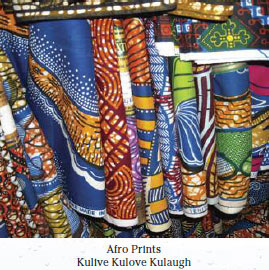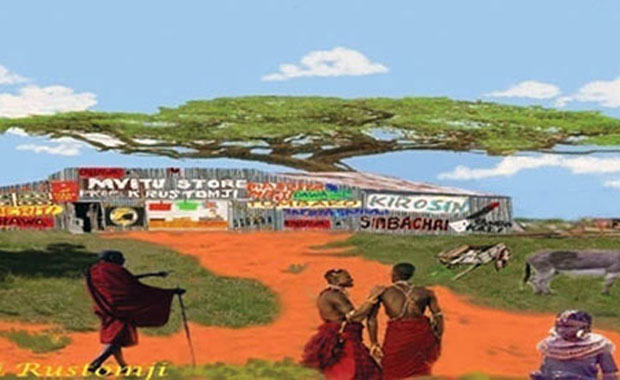The Dukawalla That Built Eastern Africa
 Braving malaria, dengue, Black Water, Sleeping Sickness and other diseases; undeterred by lions, leopards, snakes, hyenas, owls, bats and other nightly beasts; tormented by mosquitoes, Tse Tse flies, jiggers, bugs and other insects, the traders spread far inland.
Braving malaria, dengue, Black Water, Sleeping Sickness and other diseases; undeterred by lions, leopards, snakes, hyenas, owls, bats and other nightly beasts; tormented by mosquitoes, Tse Tse flies, jiggers, bugs and other insects, the traders spread far inland.
On the vast sprawling, warm, savannah plains, they attracted the African tribesmen in skin robes, armed with spears, bows and arrows. Full of curiosity, first with trepidation then cautiously, they entered the duka somewhat nervously to ogle, to feel, to taste and try many new goods - sugar, salt, groundnuts, tobacco, snuff, knives, tools, weapons, bright fabrics, matches, lanterns, mugs and many more - they had seen never before. But they had no money. So the traders suggested that they bring what they produced - maize, vegetables, honey and other products - and exchange them with what they wanted. Thus began barter. Sometimes, they brought in much more than what they wanted at the moment. So the trader gave them coins they could keep and exchange for goods. Gradually, they were given currency notes of five, ten and twenty Rupees - yes, Rupees in Africa.
The traders added more goods - spices, grains, rice and lentils; basic medicines for malaria, pains and injuries; cigarettes and beer; glassware, jars pots and pans; mirrors, scissors, combs, beads, necklaces, bangles, soaps and oils; axes and farming tools. the variety increased over time. The Africans also brought more produce to barter or sell: skins, milk, charcoal, wax, coffee, cotton, millet and sorghum and other local produce. The boiled, bland African dishes gave way to spicy foods, chappatis and rice with lentils as they planted a greater variety of vegetables and fruits.
Over time, the duka was re-built with stone and the White Settlers moved in to develop their vast farms. Now the trader added brandy, whisky, rum and vodka; razors and blades; Vaseline and hair oil; shoe polish and brushes; combs, safety pins ribbons, buttons and thread, lipsticks and cream, talcum and face powders for the Bwana (boss) and his Memsahib.
The White settlers disliked derided and mistreated the Dukawala most unfairly. They said he cheats and over-charges, claimed he keeps his accounts in Indian language for the white taxman to properly assess his profits. But when the White Settler was hit by drought and his banker refused to lend him more, he came to the Dukawalla to get credit for his immediate needs and even borrow cash for his survival.
Except for Rustomji's effort, Dukawalla's contribution to nation building remains an untold story.
—Kul Bhushan worked as Business Editor for three decades in
Nairobi, Kenya, and now lives in New Delhi.











Comments.